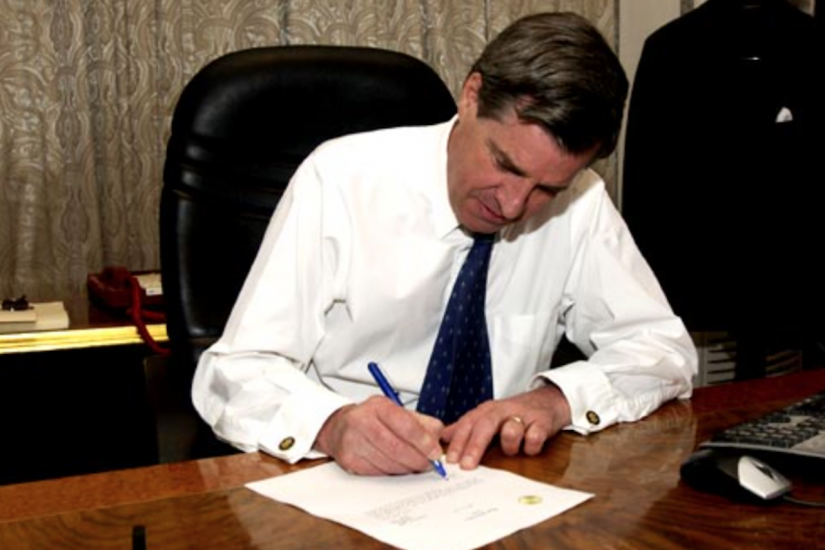Before Bremer officially accepted the appointment, he extracted a promise in a private meeting that, in the President’s words, “We’re not going to abandon Iraq. We’ll stay until the job is done.”
That kind of resolute language was typical of Bush, but while Bremer treated it as a strategic imperative, it actually left a lot of latitude — as did the fact that the president made the comment privately. Bremer continuously sought to reinforce the point in meetings with others present. “I always said, ‘This is going to take years, not months.’ Nobody ever contradicted me,’” he insists.
But with State and Defense pursuing two contrary strategies, and Bush seemingly happy to split the difference, the necessary clarity of purpose never materialized. Some of the responsibility no doubt falls to national security advisor Condoleezza Rice, whose job it was as head of the NSC to coordinate policy among the various agencies. But doing so effectively required her to corral Cheney, Rumsfeld, and Powell, all swaggering figures with decades of experience in the bureaucratic trenches. It took her years to bring them to heel, and Bush himself didn’t fare much better.
Nonetheless, Bremer is reluctant to assign blame. “One has to be fairly humble in trying to figure out why things happen at high levels of government,” he cautions. “It’s not totally explicable.” Then again, he admits, “It’s a fair criticism that there doesn’t seem to have been a tight NSC coordination of where Bush was headed regarding particular decisions. That led to a lot of ambiguity, into which people could drive their own agendas — and they subsequently did.”
He was speaking mostly about the DoD and the commanding generals, but they would undoubtedly say the same of him. “Bremer and the military were pursuing conflicting goals,” noted Task & Purpose’s Tom Ricks, author of the best-selling history of the Iraq war, Fiasco. “Bremer was trying to carry out a revolution, making Iraq a free-market, flat-tax democracy, and the U.S. military said its mission was stability.”
Ultimately, this fundamental misalignment seems to have played into what Bremer still considers the chief strategic error of the occupation: a failure from the beginning to deploy enough troops to provide adequate security. He brought up the issue with Bush during their very first meeting, pointing to a study by his friend Jim Dobbins at the RAND Corporation, calling for 500,000 troops — around three times the amount in the country at that moment. The President noted that Powell was trying to wrangle more allies but otherwise remained noncommittal. “I’ll mention it,” he said.
Bremer had already highlighted the same study to Donald Rumsfeld, who never acknowledged the message.
